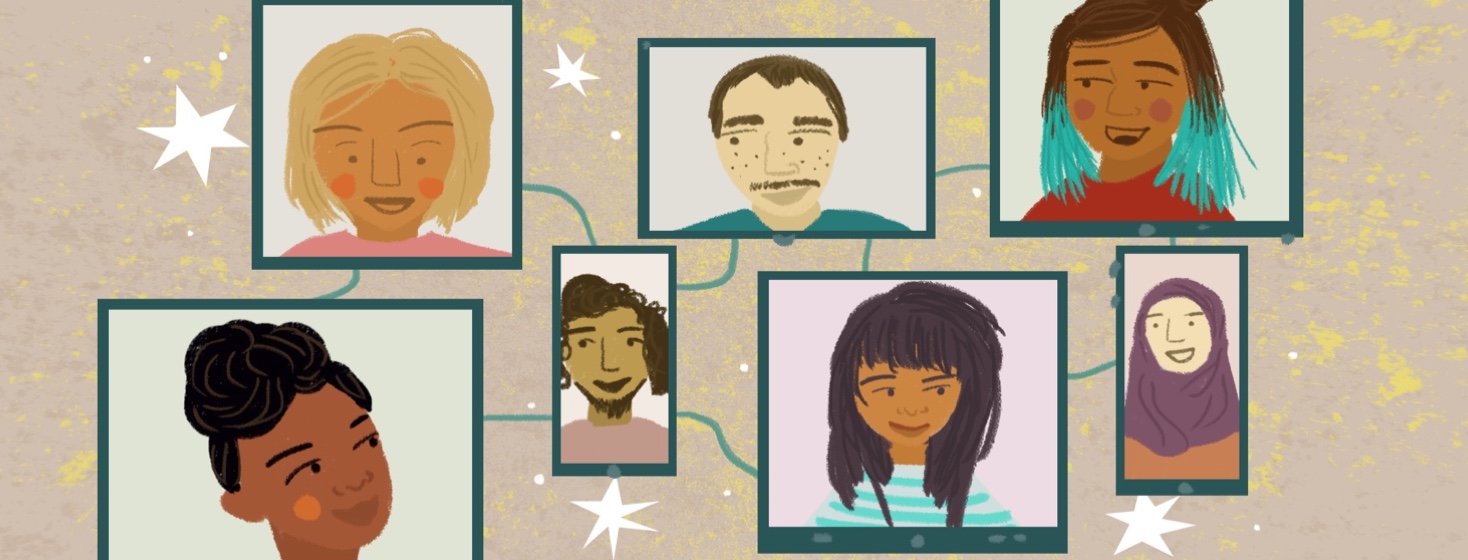Searching for Diversity
I have been actively seeking out fellow people with narcolepsy for over 2 decades. I started out in online groups where I was talking with people online. Most of the people at that time were living in the United States of America. I enjoyed my conversations with fellow people with narcolepsy and learning about all the treatment options available in the United States that were not available in the United Kingdom. It was nice to know others out there, but I still felt isolated.
I can remember how amazing it felt to meet my first friend with narcolepsy that I could meet in person in the United Kingdom. It was awesome to connect with someone who, although we had just met, I had so much in common with — someone who not only sympathised with my struggles but understood them because she experienced them, too.
A gender disparity in community event attendance
That first fellow real-time narcolepsy connection was almost 8 years after I had been diagnosed and had been actively looking for a connection. I have many friends and people I am now connected with who are living with narcolepsy.
Something I have noticed over the years is that there appears to be little male representation in the narcolepsy community — well, at least the communities I have become a part of. Sure, there are some men in the groups, but more often than not in groups, sessions, and at the conferences I have attended, the attendees are mostly female.
The disparities in the visible representation also confuse me because, based on what I can see, I would feel comfortable saying it appears narcolepsy mostly affects the female sex. This thought is quickly refuted with one simple Google search, which shows that there is not a big difference in the rates of males and females diagnosed with narcolepsy. The NHS website says, "Men and women are thought to be affected equally by narcolepsy, although some studies have suggested the condition may be more common in men."1
Are there enough spaces where everyone feels welcome?
If the lack of visual male representation in the public and online narcolepsy world is not due to it disproportionately affecting women more so than men, the question arises: Where are they? Why aren't more of them joining these online circles?
It took me a long time to find my narcolepsy tribe, and I know the benefits of having the connection and the support. I feel that the men we are not seeing highly represented would benefit from that kind of circle also. If the lack of diversity is not genetic, what is its cause?
Are the current groups not accessible? Do men not feel comfortable in the group setting? Are there currently enough diverse groups so that everyone has a space where they feel welcome?
Our shared experiences connect us
We live in a world that is becoming more and more polarised, where it often seems that everyone finds it hard to surround themselves or stay in places with people we feel do not share our values or political views, or see life the way we see it. Are we shooting ourselves in the foot by not being willing to have conversations and learn from those around us alongside the differences?
In such a changing and polarising world, are the current narcolepsy groups still accessible and safe places for everyone? Does the common thread of living with narcolepsy mean that we can come together and support each other regardless of our differences?
American writer Barbara Deming said, "The longer we listen to one another — with real attention — the more commonality we will find in all our lives. That is, if we are careful to exchange with one another life stories and not simply opinions." As fellow people living with narcolepsy, we already have something in common; our sleep disorder connects us in a way we are not connected to those around us. Perhaps with more quiet listening and less judging of those different from us, our communal spaces would be more welcoming.
Is it a lack of awareness?
If the lack of visual diversity is not connected to the nature of the groups available, or the tone of the people within them or of those hosting them, maybe the lack of attendance is due to the lack of awareness of the groups and conferences available.
I found these groups and conferences because I was looking for them. If I had not been a person looking to find someone "like me," would I have been aware of the groups and sessions available? Perhaps if we wish to see more diversity in the online narcolepsy world, we need to advertise it more so that no one has to search to know what is available.
Changing the narrative around seeking support
Lastly, another way to attract more diversity in our circles may be to continue to work on eliminating the narrative that seeking support is a sign of weakness.
It does not make you any less strong, independent, or tough to want a small part of your world to understand you, to have a place even if it is the only one where you can be 100% you.

Join the conversation